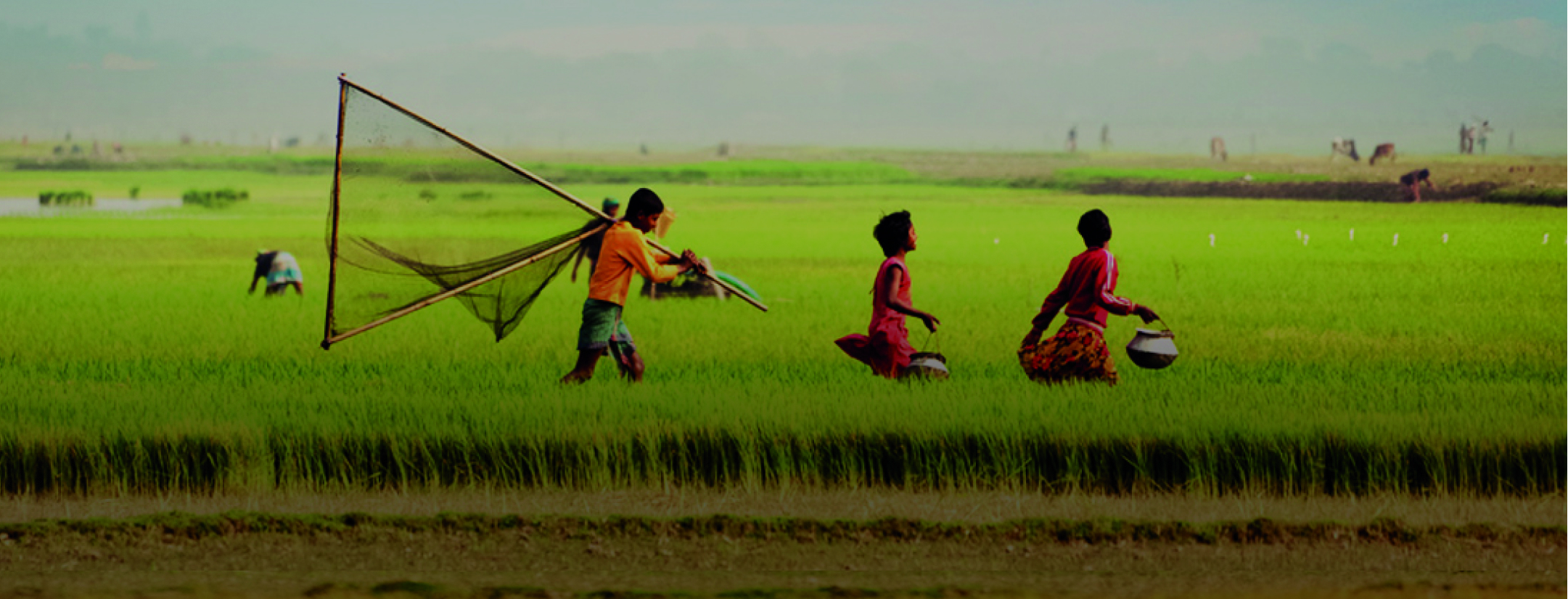
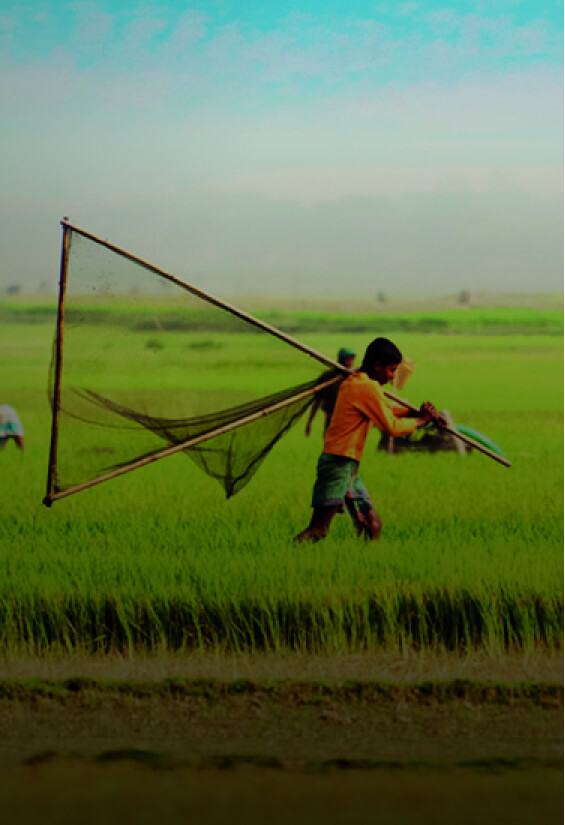


PIRI was created at the 2014 Global Policy Forum (GPF) in Trinidad and Tobago and officially launched the following year in Dili, Timor-Leste, with the vision of making responsible and inclusive financial services accessible to all Pacific Islanders. Key challenges to financial inclusion in the region include geographically dispersed islands, small populations, and limited banking infrastructure.
The initiative invites member institutions to share a common vision while working toward ensuring that financial services are widely available, easily accessed and used responsibly throughout the region. With PIRI, AFI has created a unique model of south-south engagement, that promotes smart policy development through peer learning, exchanges, strategic collaboration, and shared infrastructure development that aims to provide all vulnerable and underserved Pacific Islanders with access to formal and informal financial services.
PIRI has five objectives:
The Pacific Regional Regulatory Sandbox – A collaborative and controlled virtual policy environment that enables firms to test their innovative financial products, services and business models under the governance and supervision of eight participating financial sector regulators. Submit your applications and get started on this journey with the PIRI sandbox.










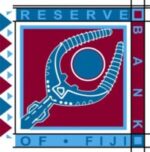
Chair
Reserve Bank of Fiji
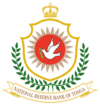
Vice Chair
National Reserve Bank of Tonga
To support members within the Pacific Islands region and other Small Island Developing States (SIDS), the following sets out the objectives for PIRI:
*PIRI became PIRI Plus in 2019, with the admission of Seychelles, following the endorsement by PIRI leaders
Delivering a financially included Pacific region, where no one is left behind and more vulnerable and underserved populations increasingly participate meaningfully in the shared prosperity that financial inclusion offers, has been an interesting and rewarding journey
Some notable initiatives, high-level commitments and ground-breaking policy success stories weave the story of how far PIRI has contributed to the growth rate of financial inclusion in the Pacific.
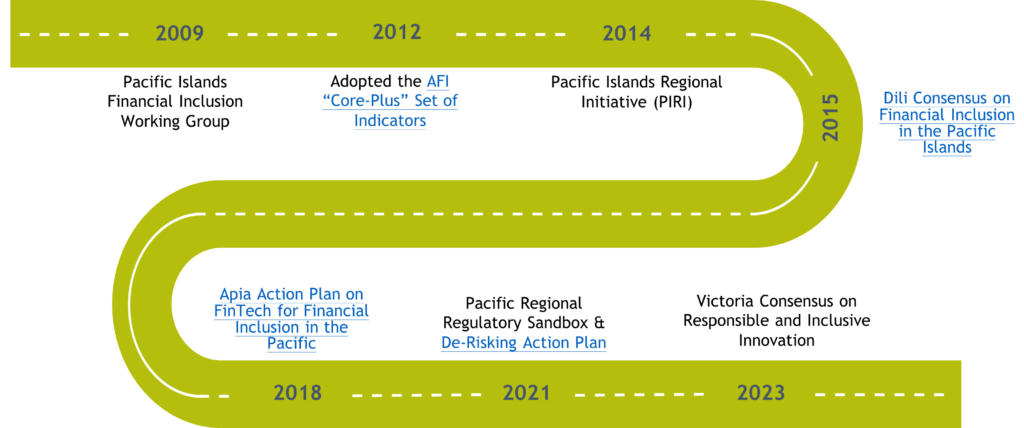
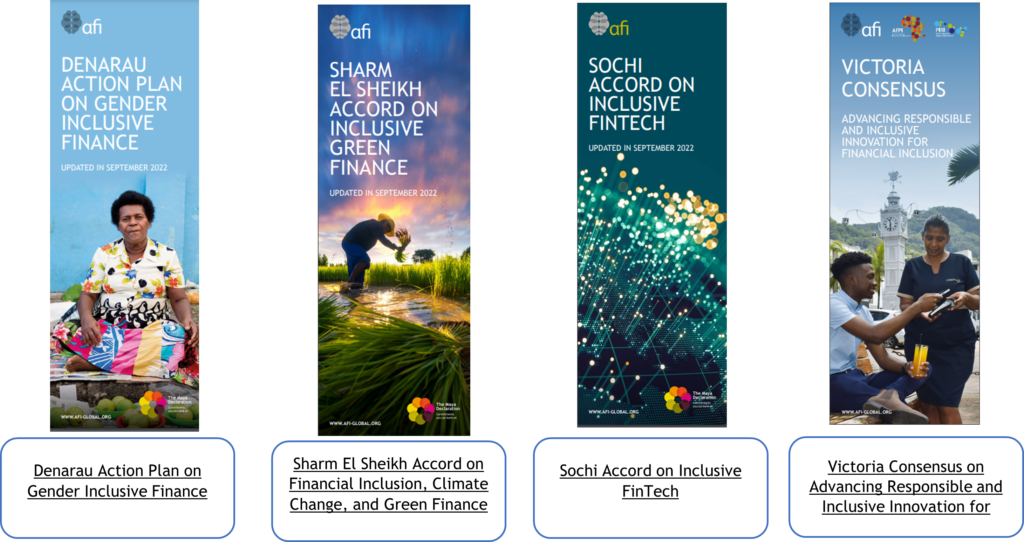
The Victoria Consensus is a clarion call by the leaders from Africa and the Pacific region to galvanize a collective commitment to leverage inclusive innovation to advance financial inclusion.
Around the world, including across Africa and the Pacific, AFI members are actively exploring the transformative power of inclusive innovation, recognizing the need to balance the risks and uncertainty they might present. They are embracing it to effectively respond to challenges, and to capitalise on opportunities, in the global financial sector. Read more.
The Pacific Regional Regulatory Sandbox is a multi-tenant “test and learn” resource delivered via a formal framework and platform, governed, and operated by eight central banks, to allow FinTechs and interested innovators experiment novel financial services & technologies, business models and other financial innovations in a controlled live environment subject to specific safeguards and oversight.
The sandbox is intended to foster, accelerate, and sustain an appropriate and balanced inclusive digital economy that supports the modernization and integrity of payment and financial systems, encourage innovation and competition, promote financial stability and security, and catalyse financial inclusion for all segments including youth, women, older people, rural communities, forcibly displaced, MSMEs and other vulnerable and disproportionally excluded due climate change events.
The financial services innovations, without prejudice to technology, expected to be tested in the regional sandbox must show great promise and progressive potential to benefit and deliver value across industries such as agriculture, tourism, fisheries, MSME, cross border commerce and trade etc., via relevant several use cases including but not limited to, digital payments, digital credit, remittances, micro-insurance, innovative savings, investments and pensions products and services, payment aggregation, transaction processing and settlement, e-commerce, bill collections, green finance initiatives and much more.
The sandbox is coordinated, operated, and availed through an integrated portal found here: www.pirisandbox.org; where expressions of interests, enquiries and applications are accepted without placing undue complexity, time, or effort on applicants with drawn-out duplicate processes probable with engaging with multiple jurisdictions.
More information on how innovators using technology for good can participate and do business in one of the thriving and beautiful regions of the world can be found in the Pacific Regional Regulatory Sandbox Guidelines.
According to the Financial Stability Board (FSB) Correspondent Banking Data Report the Melanesia and Polynesia sub-regions saw declines of 47.8% and 43.6% respectively in correspondent banking relationships (CBRs) in the period of 2011-2019, the top two highest sub-regions globally. Apart from Samoa, all PIRI member countries fall into the top 50 countries globally which experienced the largest cumulative declines in the number of CBRs between 2011 and 2019, with Timor-Leste falling into the top ten with a decline of 73.6% in CBRs over the period.
Given the above context, the PIRI Leaders and EGFIP Members endorsed the development of a Regional De-risking Action Plan for the Pacific at the 10th PIRI Meeting in Honiara, Solomon Islands in June 2019. The purpose of the Action Plan is to harmonize PIRI Members’ efforts at the regional level and to then drive the formulation and implementation of National Action Plans to reverse or stem de-risking within their own jurisdictions.
Following that, PIRI conducted a two-day workshop in Sydney, Australia in November 2019 to further develop and finalize the action plan with key non-PIRI jurisdictions and regional partners. The workshop emphasized an open and inclusive consultative approach that ensured shared ownership among the stakeholders and attained a consensus on feasible timelines, roles and progress tracking mechanisms.
The objective of the de-risking action plan is to increase economic stability through stable global and regional banking relationships and financial services that are accessible to all Pacific islanders.
Pacific Islands Regional De-Risking Action Plan
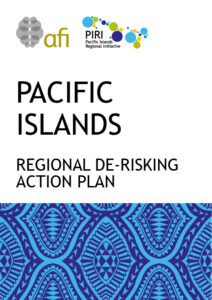


© Alliance for Financial Inclusion 2009-2024